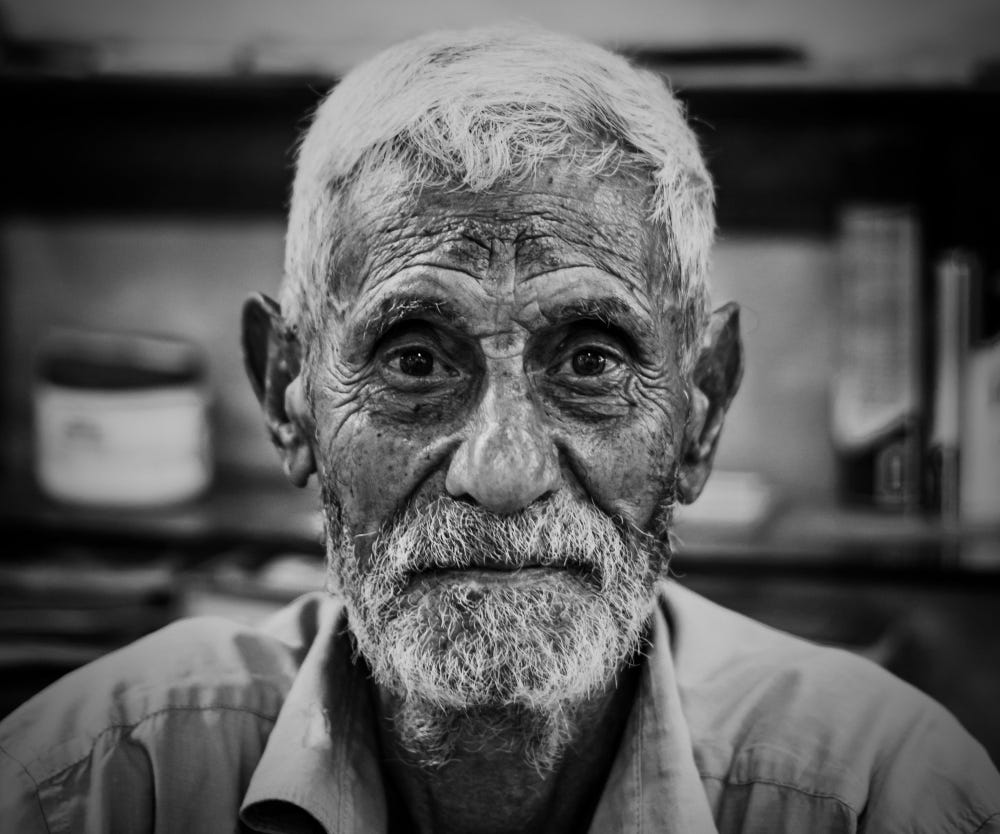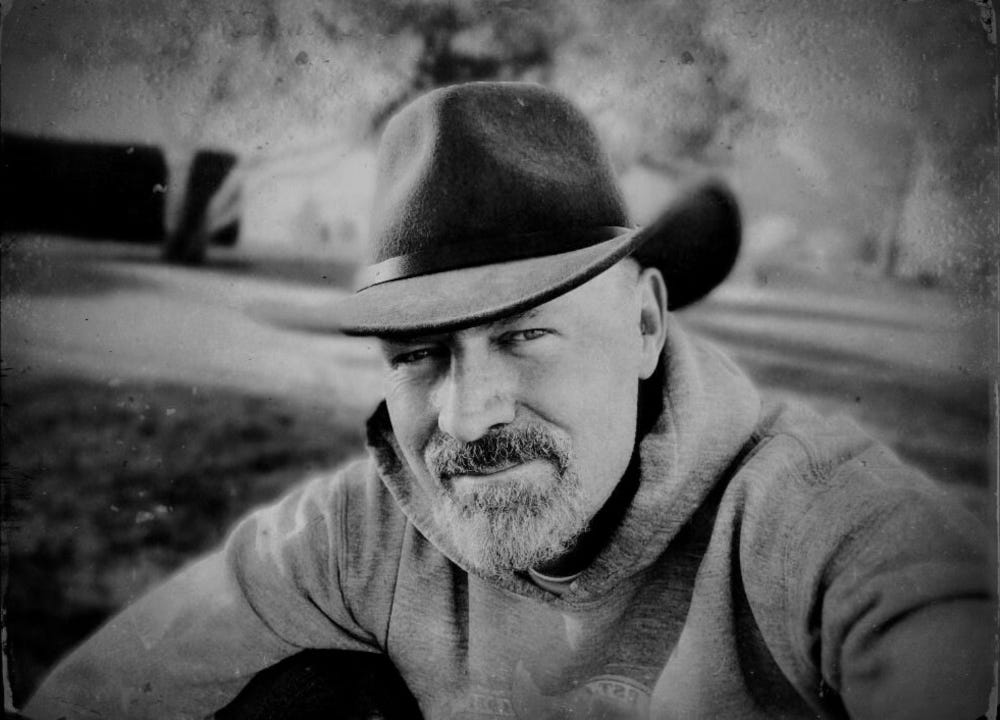The Things We Keep
Art, memory, and the small companions that stay with us

There was an assisted living center in my town.
I came to know it well in the years I wore a badge. We were called there often. Heart attacks. Falls. Missing medicine. The place was quiet but for the sound of television sets and walkers rattling in the halls. Among ourselves we called it God’s waiting room.
A joke, maybe, but the truth was near enough.
One afternoon I was sent for a man who would not take his pills. The staff thought a uniform might do some good. I followed them down a corridor that smelled of bleach and lasagna. The lights were low and the carpet muted every footfall.
They knocked and the door opened and there he stood. Tall, thin. Shoulders bent like a man carrying something too heavy to set down.
His hair and beard were white. Skin leathery. His eyes were wet and red as if he had been weeping for a very long time.
And he seemed to look through me, as if a part of himself wandered off years ago.
Inside his room the curtains were open and sunlight illuminated and warmed everything. A French easel by the window. Oil paintings leaned against the wall, landscapes and still lifes.
The work was good.
The kind of good that comes from years of watching the light change and chasing it with a brush. A landscape painter myself, I could see the sophistication in his work. The muted tones, careful handling of values, and melancholy serenity he conveyed in his lonely barns, hidden meadows, and less-traveled pathways in the woods.
“What we once enjoyed and deeply loved we can never lose, For all that we love deeply becomes a part of us.”—Helen Keller
I told him why I was there. Asked if the medicine made him sick.
No, he said. Just didn’t want it.
He spoke of his wife then. Dead some years. His words trailed off and he wept.
You must really miss her, I said.
He nodded. Those cloudy eyes met mine and there was something in them you don’t see often. A man still alive but shipwrecked far from shore. I tried to imagine the difficulty of a long life, of losing your best friend, becoming marooned in an assisted living center. Knowing time has grown thin.
I told him his paintings were beautiful. He did not answer. Just kept working. The soft sound of the brush on canvas seemed to float between us, as if he’d set up a boundary. I could watch, but that was all.
I said I was sorry for his loss. But at least he still had his art.
He stopped then. Looked at me.
Yes, he said. A loyal companion.
When the staff came back, he took his pills. I wished him well and went back to my patrol car.
I returned to that place many times in the years that followed. Sometimes to help the living. Sometimes to wait for the dead to be carried out. The rooms were small chapels of memory. Photographs of children and grandchildren. Chairs worn smooth at the arms. Books turned soft with years. Small keepsakes that held stories no one would ever know.
“The unexpected favors of fortune, no matter how dazzling, do not mean very much to us. They may excite or divert us for a time, but when we look back, the only things we cherish are those which in some way met our original want; the desire which formed in us in early youth, undirected, and of its own accord.”—Willa Cather, The Song of the Lark
Christopher Hitchens said that in the end it all comes down to a bed. And it is true. In that last room we lie waiting for the veil to lift. If we are fortunate we are surrounded by the things that sustained us. For my mother, it was the little porcelain dogs. A childhood gift from her mother. She kept those dogs her whole life.
Now I keep them.
I never knew when the painter passed. One day another resident lived in his room. I like to think that when his time came he was not alone. His paintings, brushes, and canvases stood around him like sentries, the last loyal companions of a quiet life.
Maybe his soul took a detour through the backwoods and meadows and streams in his paintings? After all, who knows what is possible when we leave our corporeal confinement.
We should all keep such companions.
Not clutter. Not the castoff things we buy to fill the silence. Just the few objects that light the spirit. The ones that help us remember who we are.
I keep my books. My pens. My journals. My mom’s porcelain dogs. I keep them near.
For when the world grows small and the walls draw in, these will be the things that stay.
Before you go
This journal continues because a few readers quietly support it. If these pages matter to you, a small one-time gift below helps keep the work going.
Thank you for reading.
Subscribe to Weiss Journal.


